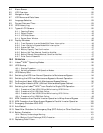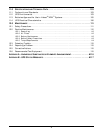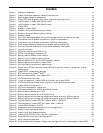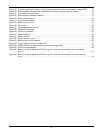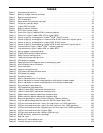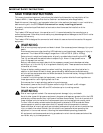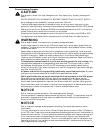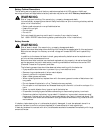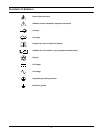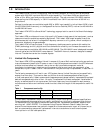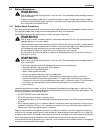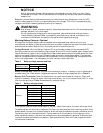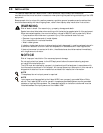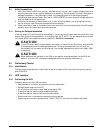
3
Battery Cabinet Precautions
The following warning applies to all battery cabinets supplied with UPS systems. Additional
warnings and cautions applicable to battery cabinets may be found in 4.0 - Battery Installation.
Battery Hazards
If a battery leaks electrolyte, or is otherwise physically damaged, it must be replaced, stored in a
container resistant to sulfuric acid and disposed of in accordance with local regulations.
If electrolyte comes into contact with skin, the affected area should be washed immediately with large
amounts of water.
!
WARNING
Risk of improper handling. Can cause injury, property damage and death.
Internal battery strapping must be verified by manufacturer prior to moving a battery cabinet
(after initial installation).
• Battery cabinets contain non-spillable batteries.
• Keep units upright.
• Do not stack.
• Do not tilt.
Failure to heed this warning could result in smoke, fire or electric hazard.
Call 1-800-LIEBERT before moving battery cabinets (after initial installation).
!
WARNING
Risk of electric shock. Can cause injury, property damage and death.
Special care should be taken when working with the batteries associated with this equipment.
Batteries are always live. Battery terminal voltage will exceed 300VDC and is potentially
lethal.
In addition to the hazard of electric shock, gas produced by batteries can be explosive and
sulfuric acid can cause severe burns.
Batteries should be installed, serviced and replaced only by properly trained and qualified
service personnel trained in safe battery handling methods and who have the correct PPE
(Personal Protection Equipment) and tools.
The following precautions should be observed when working with the batteries:
• Eye protection should be worn to prevent injury from electrical arcs.
• Remove rings, watches and all other metal objects.
• Use only tools with insulated handles.
• Wear rubber gloves and boots.
• When replacing batteries, replace them with the same type and number of batteries or bat-
tery packs.
• Do not dispose of batteries in a fire. The batteries may explode.
• Do not open or mutilate batteries. Released electrolyte is harmful to the skin and eyes. It is
toxic.
• Never lay metal objects of any type on top of the batteries.
• Disconnect the charging source before connecting or disconnecting battery terminals.
• Determine whether the battery is grounded. If the battery is grounded, remove source of
the ground. Contact with any part of a grounded battery can result in electrical shock. The
likelihood of such shock can be reduced if such grounds are removed during installation and
maintenance.



